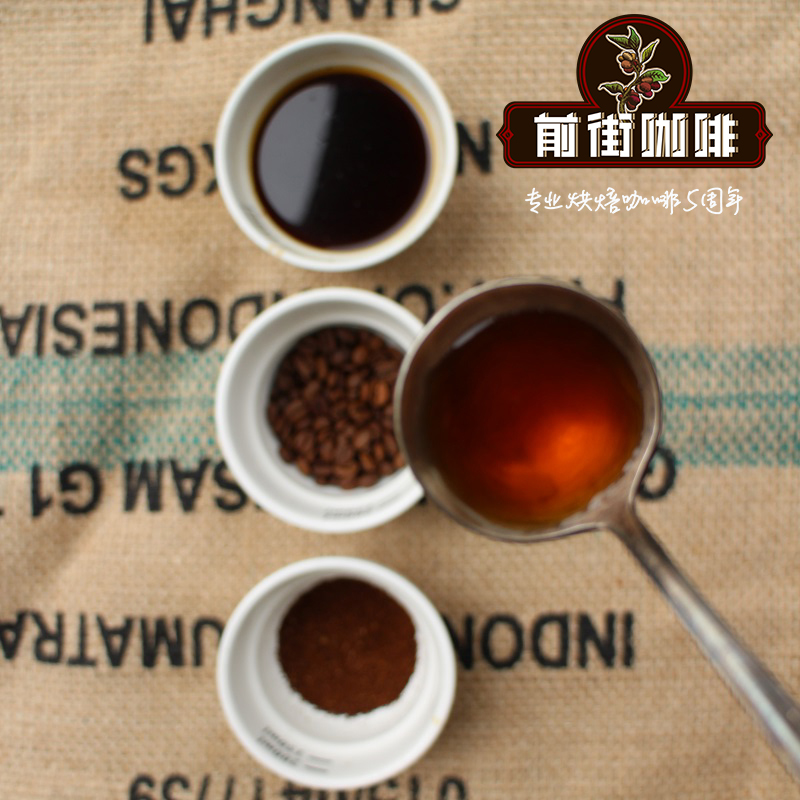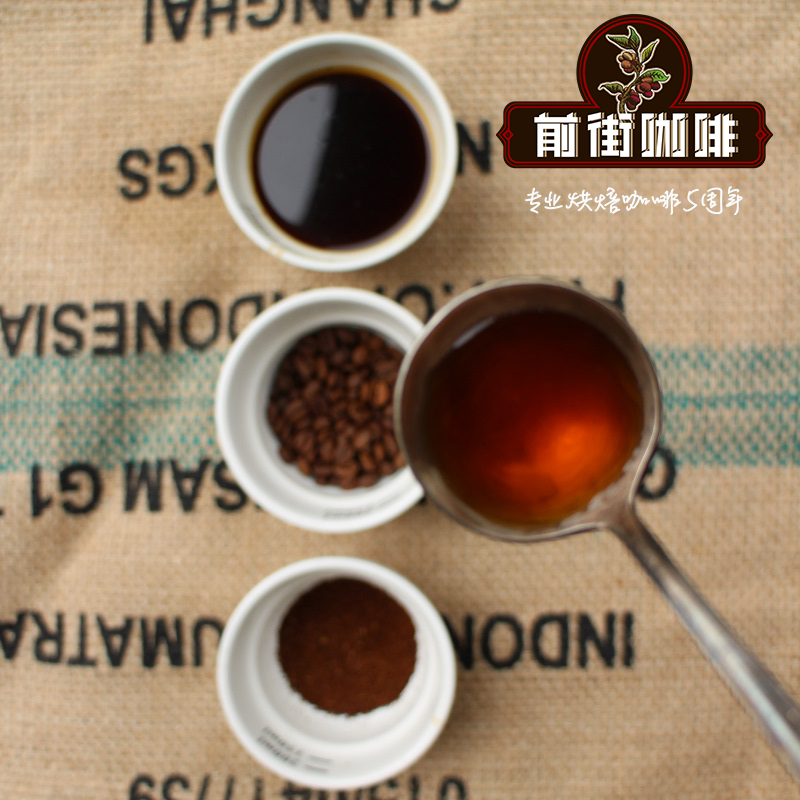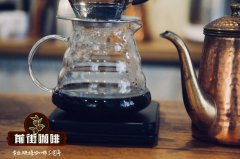Kenya Coffee Grading Kenya Coffee Features Kenya Coffee Why Acid

Professional coffee knowledge exchange more coffee bean information please follow the coffee workshop (Wechat official account cafe_style)
Kenyan coffee is famous for its acidity and enjoys a good reputation for its quality and industry practices. The best local coffee has multiple flavors, rich fruit aromas with berry flavors; the palate is deep and thick, full of aroma, and some varieties even have sweet and wine aromas.
People in the coffee industry all think that Kenyan coffee is one of its favorite products, because Kenyan coffee contains every feeling we want from a good cup of coffee. It has wonderful and satisfying aromas, well-balanced acidity, well-proportioned particles and excellent fruit flavors. Next, Qianjie Coffee will take you into the world of Kenyan coffee!
Kenya, located in East Africa, is one of the major coffee producing countries. More than 6 million people in the country are engaged in the coffee industry, mostly in the form of a combination of small farmers, water treatment plants and cooperatives. Kenyan coffee is mainly treated by washing. Coffee trees are mostly planted in mountainous areas with an altitude of 1400 meters to 2000 meters above sea level. There are Ruiri, Thika, Kirinyaga and Mt in the producing areas. Kenya West, Nyeri, Kiambu and Muranga. Among them, the foothills of Mt.Kenya and Aberdare are the main producing areas. Kenyan coffee is graded according to particle size and flavor. The particle size of AA, AB and PB,AA is 17 mesh and 18 mesh, and AB is 15 order and 16 order. PB is PEABERRIES. The flavor grade of TOP, PLUS, FAQ,FAQ-- "Fair to Average Quality" will have some slight defective beans, but it will not affect the flavor.
Coffee entered Kenya in the 19th century, when Ethiopian coffee drinks were imported into Kenya through southern Yemen. But it was not until the early 20th century that the Bourbon Coffee Tree was created by the St. Austen Mission (St). Austin Mission) is introduced.
Kenyan coffee is mostly grown at an altitude of 1500m, 2100m, and is harvested twice a year. To ensure that only ripe berries are picked, people must tour the forest about seven times. Kenyan coffee is grown by small farmers. After they harvest the coffee, they first send the fresh coffee beans to the cooperative cleaning station. The washing station sends the dried coffee to the cooperative in the form of "parchment coffee beans" (that is, coffee beans covered with endocarp) to the cooperative ("parchment coffee beans" is the last state of coffee beans before peeling). All the coffees are collected together, and growers charge an average price according to their actual quality. This trading method generally works well and is fair to both growers and consumers.
The Kenyan government takes the coffee industry very seriously, where it is illegal to cut down or destroy coffee trees. Kenyan coffee buyers are world-class buyers of premium coffee, and no country can grow, produce and sell coffee on a continuous basis like Kenya. All coffee beans are first acquired by the Kenya Coffee Commission (coffeeBoard of Kaeya, CBK), where they are identified, graded, and then sold at weekly auctions, where they are no longer graded. The Kenya Coffee Commission only acts as an agent to collect coffee samples and distribute them to buyers so that they can determine the price and quality. The auction in Nairobi is for private exporters, and the Kenya Coffee Commission pays growers a price below the market price. The best coffee grade is bean berry coffee (PB), followed by AA++, AA+, AA, AB and so on. The fine coffee is shiny, delicious and slightly alcoholic.
The main varieties of Kenyan coffee are SL28 and SL34. It was cultivated and named by the "Scott Laboratories" laboratory in 1930. According to botanists in SL laboratory, SL28 and SL34 are genetic variants. Among them, SL28 has a mixed pedigree of French missionaries, mocha and Yemeni Tibica. The goal of cultivating SL28 was to mass produce coffee beans with high quality and resistance to diseases and insect pests. Although SL28 did not produce as much as expected, copper and broad bean-shaped beans have great sweetness, balance and complex flavor, as well as significant citrus and black plum characteristics. SL34 is similar to SL28 in flavor, with a heavier, fuller and cleaner finish than SL28, except for the complex acidity and great sweetness of the finish. SL34 has French missionaries, bourbon, and more Tibica ancestry. Dou looks similar to SL28, but is more adaptable to sudden heavy rain. It is these two important varieties that lead us to know the unique Kenyan coffee beans. And in the front street coffee, you can find all these.
Qianjie Coffee recommends Kenyan coffee brewing parameters:
V60According 91-92 ℃ / 1 15 / time two minutes
Flavor:
Rich aroma of virgin fruit and sweet sucrose
Important Notice :
前街咖啡 FrontStreet Coffee has moved to new addredd:
FrontStreet Coffee Address: 315,Donghua East Road,GuangZhou
Tel:020 38364473
- Prev

What is the market outlook for Peruvian coffee? What are the flavor characteristics of Peruvian coffee?
Professional coffee knowledge exchange More coffee bean information Please pay attention to coffee workshop (Weixin Official Accounts cafe_style) For some popular boutique coffee, the market for boutique coffee is very promising. But what about the Peruvian coffee market, a rising star? Let's take a look at the Peruvian coffee market:
- Next

Is Kenyan coffee brewed or brewed? how do you drink Kenyan coffee?
Professional coffee knowledge exchange more information about coffee beans Please follow the coffee workshop (Wechat official account cafe_style) when it comes to coffee production, Kenya has always had a reputation for excellence in quality. This may have something to do with its geographical location, after all, close to the birthplace of coffee beans. Since coffee beans have traveled from Ethiopia through the mountains to Kenya, Kenya has become
Related
- Detailed explanation of Jadeite planting Land in Panamanian Jadeite Manor introduction to the grading system of Jadeite competitive bidding, Red bid, Green bid and Rose Summer
- Story of Coffee planting in Brenka region of Costa Rica Stonehenge Manor anaerobic heavy honey treatment of flavor mouth
- What's on the barrel of Blue Mountain Coffee beans?
- Can American coffee also pull flowers? How to use hot American style to pull out a good-looking pattern?
- Can you make a cold extract with coffee beans? What is the right proportion for cold-extracted coffee formula?
- Indonesian PWN Gold Mandrine Coffee Origin Features Flavor How to Chong? Mandolin coffee is American.
- A brief introduction to the flavor characteristics of Brazilian yellow bourbon coffee beans
- What is the effect of different water quality on the flavor of cold-extracted coffee? What kind of water is best for brewing coffee?
- Why do you think of Rose Summer whenever you mention Panamanian coffee?
- Introduction to the characteristics of authentic blue mountain coffee bean producing areas? What is the CIB Coffee Authority in Jamaica?

